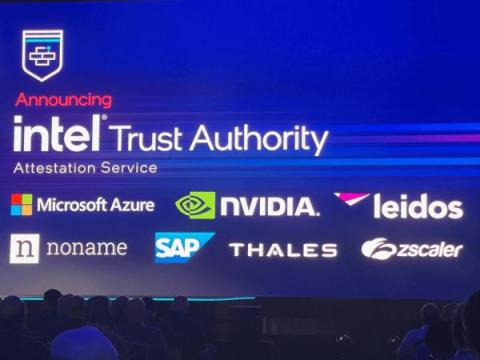Security | Threat Detection | Cyberattacks | DevSecOps | Compliance
Noname Security
What is API Abuse? | Noname Security Academy
2023 API Security Trends for Retail and eCommerce
If the retail industry felt that the initial shift toward eCommerce sent shockwaves through the sector, they may not have been able to comprehend the changing dynamics of consumer behaviors once digital retail expectations were set. We have seen consumer preference move from simply preferring to shop online to a demand for personalized selections and processes.
2023 API Security Trends for Manufacturing
Manufacturing is an industry in flux. The sector has been acutely affected by inflation, supply chain challenges and labor shortages in recent years, while also grappling with rapid developments in technology. It is no stretch to state that a manufacturer’s ability to leverage technology is a key determinant in its success and failure – now and into the future.
Noname Leads the Way for API Security in the Federal ZT Journey
Over 18 months ago, a small group of us started a program to support the US federal government and the broader public sector with robust API security. Recognizing the major shifts in government cyber security, we focused on Zero Trust early. We wrote about it, talked about it, and evangelized on the importance of including API security in a ZT architecture. An early achievement was a detailed mapping of API security to the pillars of ZT over a year ago.
The Top 5 Tips for Identifying and Deterring Suspicious API Traffic
2023 API Security Trends for Healthcare
Application programming interfaces, better known as APIs, link unrelated platforms so data can flow freely between them. And in order for providers to share patient health data across different systems, APIs must be produced at rapid speed and maintained with diligence to foster interoperability. However, this innovation comes with a catch. The more APIs an organization uses, the greater opportunity for risk they face in both performance and security.
2023 API Security Trends for Financial Services
The financial services industry has embraced the wave of digital transformation, allowing their customers to make informed decisions and instant transactions with the click of a button. One of the unsung heroes providing that level of customization and access are a collection of microservices and application programming interfaces (APIs).
API Security Trends 2023 - Have organizations improved their security posture?
APIs, also known as application programming interfaces, serve as the backbone of modern software applications, enabling seamless communication and data exchange between different systems and platforms. They provide developers with an interface to interact with external services, allowing them to integrate various functionalities into their own applications.
Noname Security and Intel Trust Authority: Building Trust Through Confidential Computing
Intel’s Trust Authority is a new service that provides remote verification of the trustworthiness of a compute asset, based on attestation (cryptographic verification) and policy (a legitimate workload). This is a significant development for confidential computing, as it provides a way for organizations to independently verify the security of their workloads. Noname Security is excited to be a partner in the Intel Trust Authority program.







